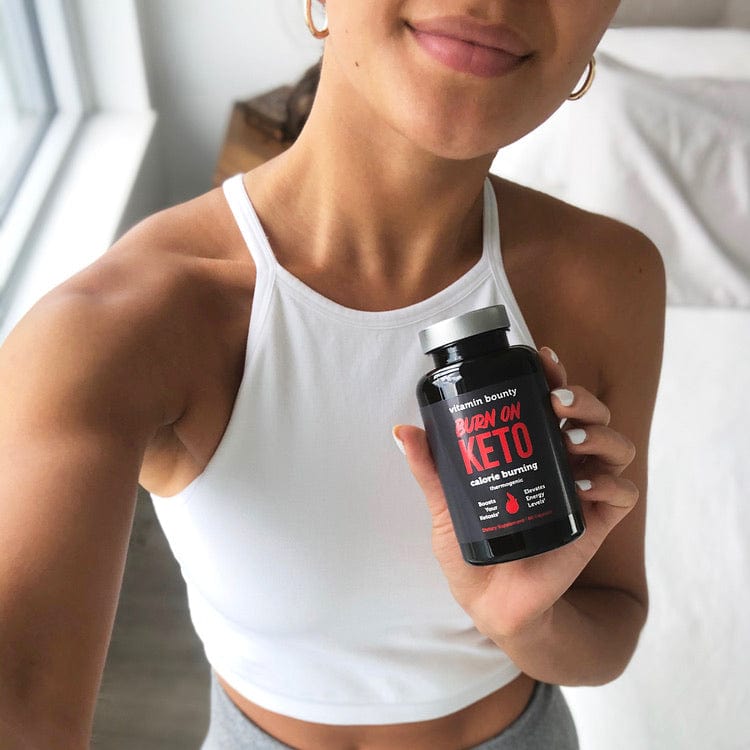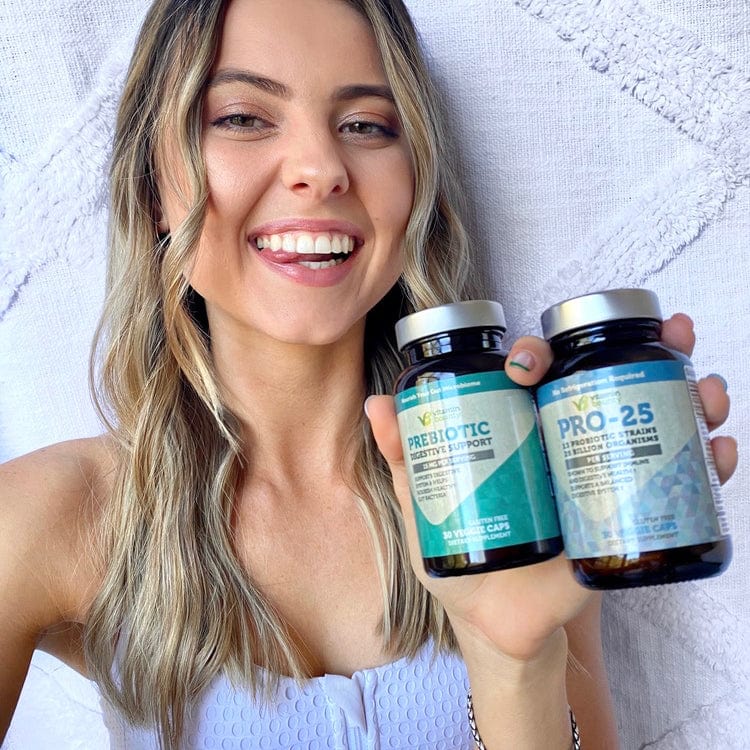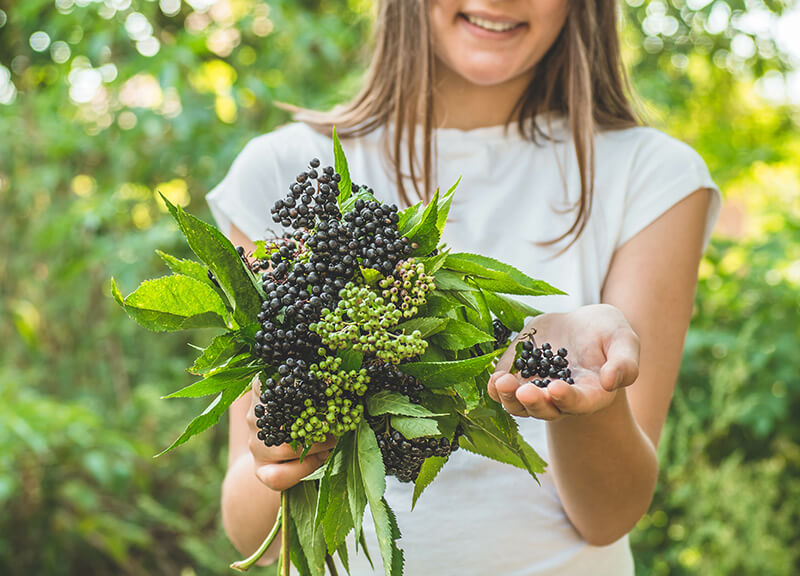Elderberries — not to be confused with elderflower — certainly aren't as common as their blueberry, raspberry, or blackberry counterparts, but they are known as nutritional powerhouses for your immune system and overall health.
Grown from plants that are native to the eastern slopes of the Rocky Mountains (among other places), elderberries have been traditionally used to ward off cold and flu symptoms, as they possess powerful antioxidative properties and high levels of vitamin C. Long before anyone had discovered the Rockies, the Egyptians even used elderberry to improve the complexion and heal burns!
Today, the berry is still commonly used in supplements, teas, and more to promote immune health and provide antioxidants for whole-body balance. Read on to learn more about the benefits and uses of elderberry, and how it can help you stay healthy when your immune system needs a boost!

The "right" type of elderberry
There are a few different varieties of this health food gem, but the one that contains the most benefits is the Sambucus species. The berries and flowers of the plant boast several nutritional properties, and are best-known for high levels of iron, vitamin A, vitamin C, and pectin, along with the flavonoid group called anthocyanins. This phytochemical is commonly found in beverages and food that are known for antioxidants, such as several teas, wine, fruits, nuts, vegetables, olive oil, and cocoa, to name a few.
The antioxidants found in the Sambucus species of elderberry are commonly thought to ward off illness, including colds and flu, and have additionally been thought to improve cardiovascular disease and circulation, as well as reduce the risk of developing colon cancer.
Targeting colds & flu using elderberry
The first thing to understand is that elderberry won't get rid of a cold or the flu; however, research shows that elderberry supplements and teas, for instance, can reduce the amount of time you're sick by as much as four days, and can aid in minimizing the severity of symptoms.
While elderberry isn't a comprehensive solution for illness, its most helpful attribute is that it can potentially keep your immune system strong enough to keep colds and flu at bay in the first place. One study shows that people who regularly took elderberry supplements and frequently traveled by plane were able to fight off colds more effectively, and substantially reduced most symptoms associated with upper respiratory illnesses.
It should be noted that, when taking steps to strengthen your immune system, you should target other key vitamins, minerals, and whole foods in addition to incorporating an elderberry supplement or syrup into your diet. Elderberry supports, not carries, your overall immune health, so it may be beneficial to consider a vitamin or supplement that contains elderberry in addition to other immune-supporting ingredients.

Targeting full-body health
A few other common uses of elderberries include improving circulatory and cardiovascular health — particularly for stabilizing blood pressure and regulating blood sugar levels — and reducing inflammation, which is also quite helpful when your body is fighting an illness or virus. Basically, if you're feeling under the weather, elderberry is an all-around fantastic solution to target a wide range of symptoms associated with illness.
A lesser-known advantage of making elderberry a regular part of your diet is better digestive health, as the power-food contains a high amount of fiber (10 g, to be specific). Thus, if you are suffering from constipation, or if you're at risk for colon cancer, it may be helpful to incorporate elderberries into your daily diet — their high fiber content will serve to reduce both of these risks.
Lastly, if you suffer from mental health issues, elderberries may also improve anxiety and depression, as their high levels of antioxidative properties help boost your overall mood, and combat symptoms associated with mental health disorders. Also associated with the antioxidant properties of elderberry is a reduction of free radicals in the body, and the improvement and protection of brain health.
Potential side effects of elderberry
Despite the fact that regularly taking elderberry is a great way to boost your overall health, you should be aware that consuming raw elderberries is poisonous (although you probably won't be picking any on the side of a mountain any time soon). The most common side effect of cooked elderberries is that they can occasionally cause mild allergic reactions for some, such as hives, lip tingling, or tongue swelling. Occasionally, elderberries may also cause nausea and GI upset. If any of these are the case for you, discontinue use immediately.

Taking an elderberry supplement
One of the safest, most effective ways you can make elderberry a part of your daily diet is through a high-quality vitamin or supplement, like this comprehensive one that also includes garlic, vitamin C, zinc, and echinacea in addition to elderberry extract, all of which act together to provide your immune system with a powerhouse of immune-boosting nutrients. Moreover, the supplement is packed with 100% of the daily value for zinc, and 200% of the daily value of vitamin C to equip your immune system to fight colds as effectively as possible.
The Elderberry Immune Support supplement also contains several antioxidant ingredients, such as vitamin A, B, C, and a variety of key amino acids to promote a balanced state of energy and wellness.







1 comment
Vivian Timmons
Question. I’ve often heard you should not take immune-boosting supplements ‘forever’. They should be taken at onset of symptoms, then stop. Something about giving your own immune system a chance to work. Is this true or a myth?
Leave a comment
All comments are moderated before being published.
This site is protected by hCaptcha and the hCaptcha Privacy Policy and Terms of Service apply.